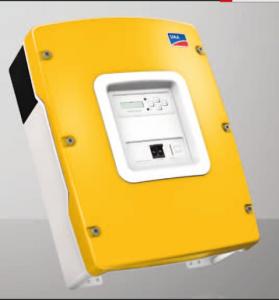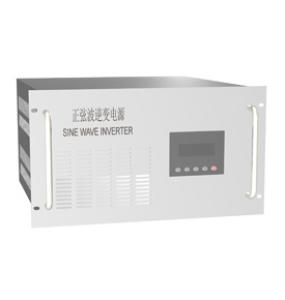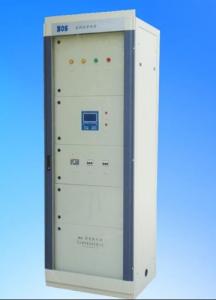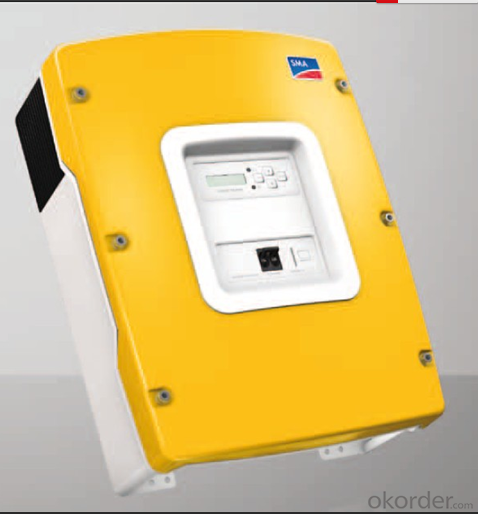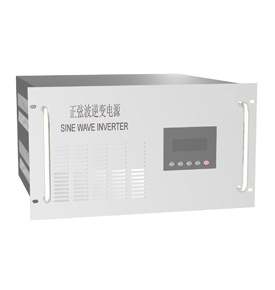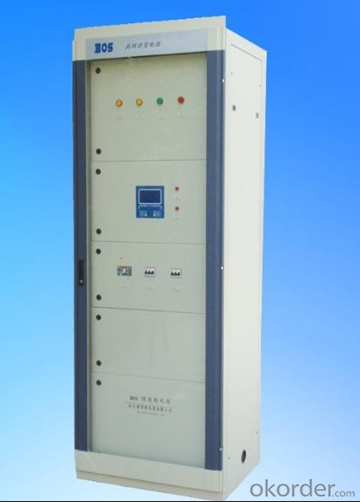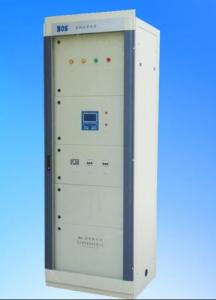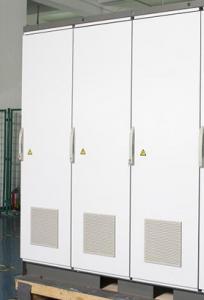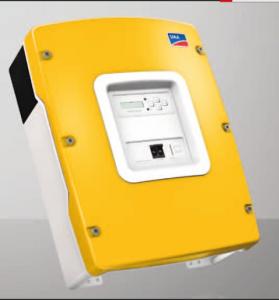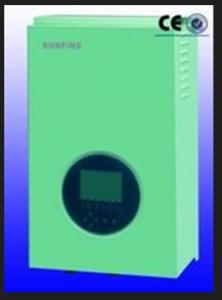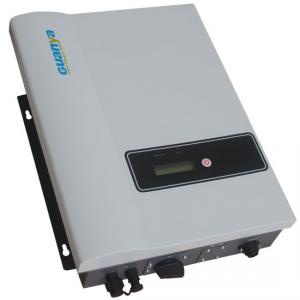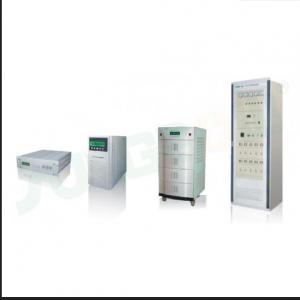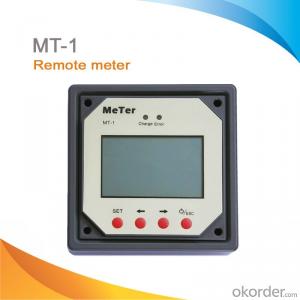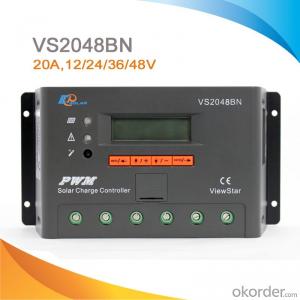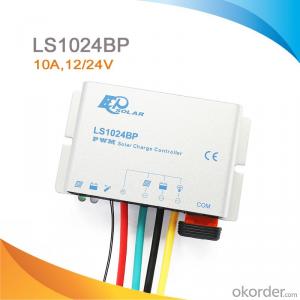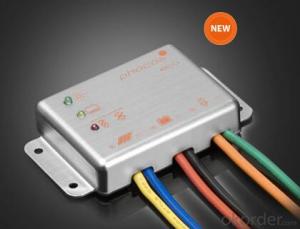Portable Solar Controllers PV Off-Grid Inverter GN-5KD with Good Quality from China
OKorder Service Pledge
OKorder Financial Service
You Might Also Like
Description:
CNBMSOLAR is a world-leading and Vertical integrated manufacturer of high-performance with Silicon,
Wafer, Cells, Modules, which convert sunlight into electricity for residential, commercial, and utility-scale
power generation.
The capacity of CNBMSOLAR is reach to 1GW, and make sure each year our shipment capacity is more
Than 700-800MWs, at the same time, we have set up the largest solar power station with our partner
in Ukraine.
CNBM is a Quality + Service oriented company with“Excellence at Each Step” approach, composed of
the finest components from TUV and IEC-certified partners around the world, CNBM modules consistently
undergo a variety of trials at the company’s Test & Development Centre, ensuring peak performance
capabilities. The company is committed to develop and provide the world with clean and renewable energy
to ease the energy shortages as well as human kind’s impact on the environment.
Data:
Model | GN-5KDS | ||
DC input | Rated Voltage(VDC) | 220Vdc | |
Low Voltage(VDC) | 43.2Vdc | ||
Low Voltage Resume (VDC) | 50.4Vdc | ||
Load Overvoltage(VDC) | 70Vdc | ||
Grid input | input rated voltage | 220Vac | |
Input Voltage range | 220Vac±15% | ||
Input frequency | 50Hz | ||
switching mode | Static switch optional,inverting priority | ||
switching time | <10ms | ||
AC output | rated capacity | 5kVA | |
rated power | 4kW | ||
rated output voltage | 220Vac | ||
Output voltage stable precision | 220±3%Vac | ||
Output frequency | 50Hz | ||
Output frequency precision | 50±0.2Hz | ||
overload ability | 120%,1 min | ||
output waveform | Pure sine wave | ||
THD | ≤5% | ||
Dynamic Response(0~100%) | 5% | ||
Power factor | 0.8 | ||
Crest Coefficient(CF) | 3:1 | ||
Inverter Efficiency | ≥85% | ||
Continuous running time | continuous running | ||
Insulation strength(inout and output) | 1500Vac,1min | ||
protection functions | DC voltage, dc current, voltage, utility line frequency, output voltage, output current, output frequency, output power | ||
display | LCD | ||
temperature | -20~+50℃ | ||
humidity | 0~95%(No condensation) | ||
Noise | ≤50(Db/M) | ||
operating alititude | ≤3000m | ||
Reference Dimensions(d\w\h mm) | 550*480*800mm | ||
Reference weight(Kg) | 128.0kg | ||
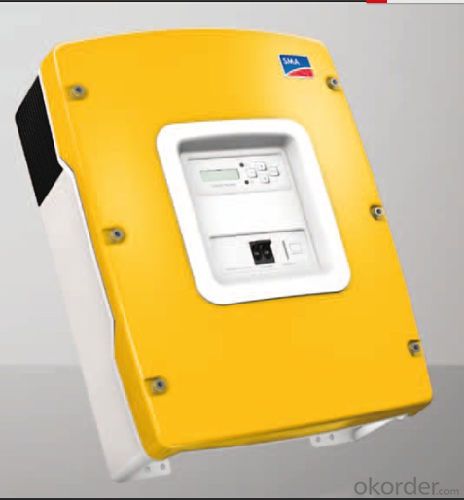
FAQ:Pls introduce more about CNBM
CNBM Group is short for China National Building Materials Group Corporation, which is established in 1984 with approval from the State Council
CNBM Group is the largest comprehensive building materials industry group in China
The Group has a total asset of over RMB 360 billion, more than 180,000 employees and 17 subsidiaries
- Q: Can a solar controller be used in a solar-powered research station in Antarctica?
- Yes, a solar controller can be used in a solar-powered research station in Antarctica. A solar controller regulates and optimizes the charging and discharging of batteries in a solar power system, ensuring efficient energy management. Given the abundant sunlight available in Antarctica during summer months, installing a solar controller would be crucial in maximizing the utilization of solar power and maintaining a stable energy supply for the research station.
- Q: What is the maximum number of load control modes supported by a solar controller?
- The maximum number of load control modes supported by a solar controller can vary depending on the specific model and manufacturer. However, most solar controllers typically support around 4 to 5 load control modes, allowing users to customize and optimize their energy usage according to their specific needs and preferences.
- Q: Can a solar controller be used with different types of solar panel mounting systems?
- Various types of solar panel mounting systems can be used in conjunction with a solar controller. The solar controller's role is to regulate the flow of electricity from the solar panels to either the batteries or the grid. This regulation is not contingent upon the specific mounting system employed. The primary function of the solar controller is to oversee and manage the charging process, guaranteeing efficient battery charging while preventing any potential damage or overcharging. As long as the solar panels align with the solar controller's voltage and current ratings, it can be utilized with any solar panel mounting system, such as roof-mounted, ground-mounted, or tracking systems.
- Q: What is the purpose of the battery state of charge display feature on a solar controller?
- The purpose of the battery state of charge display feature on a solar controller is to provide the user with information about the current level of charge in the battery. This allows the user to monitor the battery's capacity and make informed decisions about energy usage and conservation. It helps ensure that the battery is not overcharged or depleted, which can extend its lifespan and optimize the efficiency of the solar system.
- Q: How does a solar controller handle power surges from the solar panels?
- The flow of power from solar panels to the battery bank or electrical grid is regulated by a solar controller, which is a crucial component in a solar power system. Safeguarding the system is a crucial role played by a solar controller when it comes to dealing with power surges from the solar panels. Power surges can occur due to various reasons like sudden changes in weather conditions, fluctuations in solar radiation, or issues with the solar panel itself. If not handled properly, these surges can potentially damage the system and its components. To handle power surges, a solar controller usually includes several protective mechanisms. One of its primary functions is to prevent overcharging of the battery bank. Whenever a power surge occurs, the solar controller detects the excess voltage and current and limits the charging rate to ensure that the battery does not get overcharged. This helps in maintaining the battery's health and prolonging its lifespan. Moreover, solar controllers often incorporate devices such as surge protectors or voltage clamps for transient voltage suppression. These devices help in absorbing and diverting excessive voltage spikes away from the system, thereby preventing damage to the solar panels, controller, batteries, or other connected devices. In addition, some advanced solar controllers utilize Maximum Power Point Tracking (MPPT) technology. This technology optimizes the power output of the solar panels by dynamically adjusting the voltage and current, even during power surges. MPPT controllers enhance the system's efficiency while minimizing the impact of power fluctuations. In conclusion, a solar controller regulates the charging rate to prevent overcharging, incorporates surge protection devices, and utilizes MPPT technology to optimize power output when handling power surges from the solar panels. These protective features ensure system stability, protect components from damage, and maximize the efficiency of the solar power system.
- Q: How do you troubleshoot common issues with solar controllers?
- When troubleshooting common issues with solar controllers, there are a few steps you can follow to identify and resolve the problem: 1. Check the connections: Ensure all the connections between the solar panels, battery, and load are secure and properly connected. Loose or faulty connections can lead to issues with the controller's functionality. 2. Examine the display: If your solar controller has a display, check for any error codes or abnormal readings. This can provide valuable information about the issue. Refer to the user manual or manufacturer's documentation to understand the meaning of the error codes. 3. Inspect the wiring: Look for any signs of damage or wear on the wiring. Rodents or extreme weather conditions can cause wire damage, which can lead to malfunctions in the system. Repair or replace any damaged wires to ensure proper functioning. 4. Test the voltage: Use a multimeter to measure the voltage of the battery and solar panels. Compare the readings to the expected values specified by the manufacturer. If there is a significant difference, it could indicate a problem with the controller or the solar panel itself. 5. Reset the controller: Many solar controllers have a reset button or a procedure to reset the device to its factory settings. Try resetting the controller to see if it resolves the issue. Make sure to save any custom settings before performing a reset. 6. Check the battery health: If the solar controller is not charging the battery properly, it could be due to a faulty battery. Test the battery separately to verify its health and capacity. If necessary, replace the battery with a new one. 7. Inspect the solar panels: Examine the solar panels for any damage or obstructions that may prevent them from receiving sufficient sunlight. Dirt, debris, or shading can reduce the efficiency of the panels, leading to poor charging performance. 8. Consult the manufacturer or an expert: If you have exhausted all troubleshooting steps and are still experiencing issues, it is recommended to reach out to the solar controller manufacturer's customer support or consult a professional for further assistance. They can provide specific troubleshooting guidance or arrange for repairs or replacements if necessary. Remember to prioritize safety when troubleshooting solar controllers by following proper electrical handling procedures and disconnecting power sources before conducting any inspections or repairs.
- Q: Can a solar controller be used with solar-powered fans?
- Yes, a solar controller can be used with solar-powered fans. A solar controller regulates the voltage and current flowing from the solar panels to the fans, ensuring optimal performance and extending the fan's lifespan. It helps to efficiently manage the power generated by the solar panels, thereby enhancing the overall functionality of the solar-powered fans.
- Q: What is the role of a battery temperature sensor in a solar controller?
- The role of a battery temperature sensor in a solar controller is to monitor and regulate the temperature of the battery. This sensor helps to prevent overheating or freezing of the battery, which can potentially damage it and reduce its lifespan. By accurately measuring and transmitting the temperature data to the solar controller, it can adjust the charging and discharging rates accordingly to optimize the battery's performance and improve its overall efficiency.
- Q: Can a solar controller be used with a solar-powered satellite navigation system?
- Yes, a solar controller can be used with a solar-powered satellite navigation system. A solar controller is responsible for regulating the amount of charge going into and out of the batteries, ensuring proper charging and preventing overcharging. It can be used to manage the power generated by the solar panels and efficiently distribute it to the satellite navigation system's battery for optimal performance and longevity.
- Q: How does a solar controller handle the switching of loads?
- A solar controller handles the switching of loads by monitoring the battery voltage and determining when it is necessary to connect or disconnect the loads. It ensures that the loads are only connected to the battery when it has sufficient charge, and disconnects them when the battery voltage drops below a certain threshold to prevent over-discharging. This switching mechanism helps optimize the utilization of solar energy and protects the battery from damage.
Send your message to us
Portable Solar Controllers PV Off-Grid Inverter GN-5KD with Good Quality from China
OKorder Service Pledge
OKorder Financial Service
Similar products
Hot products
Hot Searches
Related keywords
